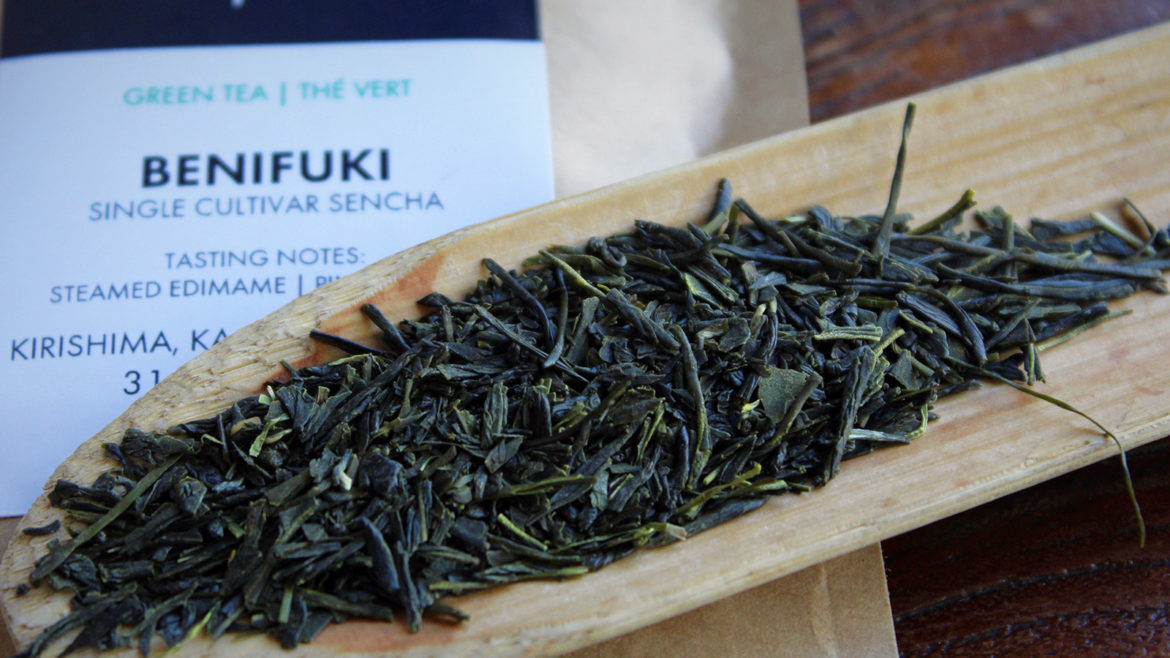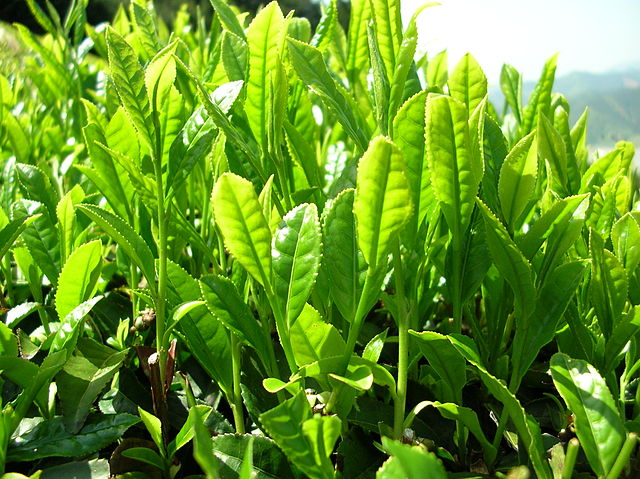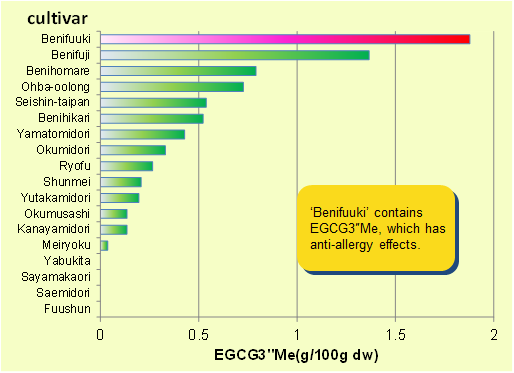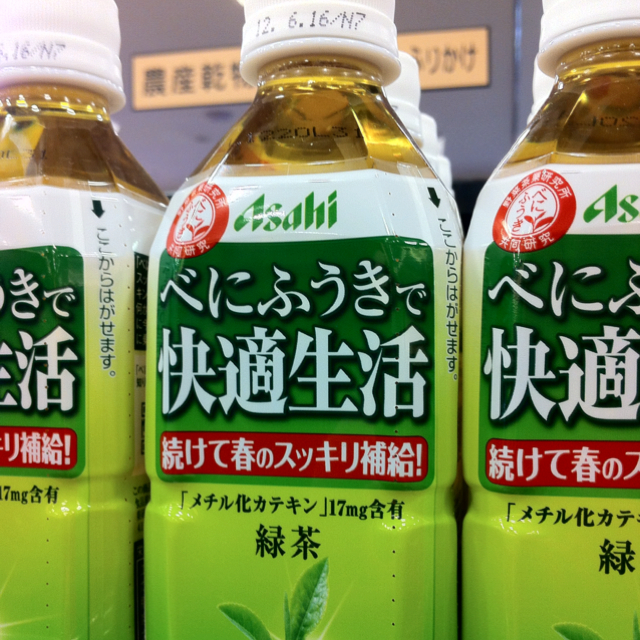Allergies suck. In America alone, scientists believe about 50 million people suffer from some kind of nasal allergy. Pharmacies are stocked with all kinds of concoctions designed to provide allergy relief. However, science suggests there might be something missing from those pharmacy shelves: tea.
Research on the health benefits of tea is plentiful, and a simple search on Google will turn up a number of authoritative studies on tea. This is what I found myself doing recently after friend of mine introduced me to a new green tea from Japan: Benifuuki.
Origins of Benifuuki in Japan
If you’re drinking a regular Japanese green tea, it’s probably made from the Yabukita cultivar. I’ve read a few sources that say Yabukita accounts for up to 75-85% of all green tea grown in Japan. Its popularity apparently originates from its ability to survive frost, which mattered back in the days before modern technology solved that particular problem with electric fans.
Benifuuki is a hybrid of two tea cultivars: Makura Cd86 and Benihomare. Makura Cd86 originates in Darjeeling but is of the Chinese variety sinensis, whereas Benihomaree is of the Indian variety assamica. They were introduced to Japan in the late 19th and 20th Century in order to make black tea for the European market. It didn’t work, but that’s another story for another time.
What we care about in this case is what happens when Benifuuki is made into green tea.
Strap on your science hat. We’re gonna get a little technical.
Benifuuki’s Powerful Methylated Catechins
Catechins (pronounced cat-eh-kin) are one of tea’s most powerful ingredients. They comprise some of the antioxidants everyone talks about when they mention the health benefits of tea, and they are responsible for a whole host of tea’s supposed health benefits.
All loose leaf teas have catechins, but Benifuuki’s particular variety are especially awesome for fighting seasonal allergies. This is because the particular type of catechins present in Benifuuki–O-methylated catechins (EGCG”Me and ECG3″Me specifically), suppress the body’s immune response to allergens such as pollen. That means fewer itchy eyes, runny noses, sore throats, and so on.
Bye Bye, Bad Allergies?
When scientists studied consumption of methylated catechins in Benifuuki (~40mg of O-methylated catechins) versus Yabukita (0mg) for their affects on Japanese Cedar Pollinosis, which is the most common seasonal allergy afflicting people in Japan, they found it was in fact able to produce a measurable improvement in typical allergy symptoms and overall quality of life during allergy season. (1)
Moreover, they found adding ginger extract to benifuuki tea further enhances the allergy-fighting effects of the tea. Researchers used a 1:20 ratio of tea-to-ginger extract, meaning for every 1 gram of benifuuki tea they added 20mg of ginger extract.
Finally, participants in the study began drinking the tea 11 weeks before allergy season, because your body needs some time consuming the tea on a regular basis (2x/day, 1.5g tea bag in this case) to build up the good stuff that will bring you relief once allergens are in the air.
There Is A Catch
Don’t go throwing your Claritin out the window just yet, because there’s a catch.
In the study, scientists prepared a concentration of powdered Benifuuki tea by basically cooking the hell out of it with high temperature and long brewing times (6 minutes at 90 degrees Celsius). They then added water to dilute the mixture. This is not the way people normally drink loose leaf tea (bottled tea is another story).
The reality is, if you’re drinking this tea for enjoyment, which should be the primary motivation for drinking tea in my opinion, you’re not going to get the same allergy-fighting boost from Benifuuki you would if you followed the brewing method used in the study.
This shouldn’t upset you, because there’s a silver lining: this tea is delicious. It’s bold and astringent with lots of body and a strong flavor. There’s a slight honey sweetness if you brew it on the gentler side, and it turns into something almost like a Chinese phoenix oolong if you push it up the heat/time scale.
Get A Head Start On Allergy Season
Allergy season is kicking off soon in the United States. The study recommends getting started early on drinking Benifuuki to maximize the benefits come allergy season.
If anyone who suffers from spring allergies like hay fever and whatnot does try this, please please please let me know. I’m fortunate enough to not suffer like some folks, but I’m dying to know if it works for you!
Want more articles like this and others in your inbox? Click Here to subscribe to The Tea Letter get all the best tea-related info from around the web!
(Cover photo credit: o5tea.com)



